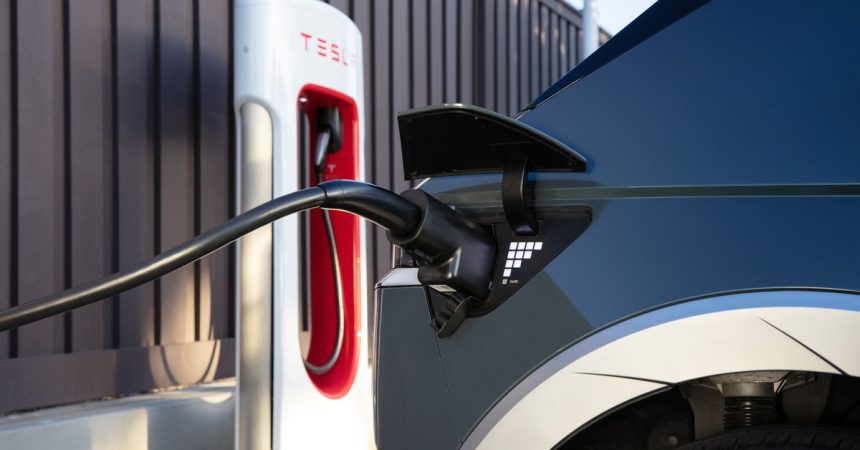Hyundai’s recent announcement to provide complimentary Combined Charging System (CCS) to North American Charging Standard (NACS) adapters marks a significant shift in the electric vehicle (EV) charging landscape. This strategic move aims to bridge the gap between existing Hyundai EV models and Tesla’s extensive Supercharger network, offering enhanced charging accessibility and convenience for Hyundai owners. By distributing these adapters free of charge to customers who purchased or leased their vehicles on or before January 31, 2025, Hyundai demonstrates a commitment to supporting its existing customer base during the transition to the increasingly prevalent NACS standard. This initiative will effectively expand the charging options for a substantial number of Hyundai EV drivers, allowing them to utilize Tesla’s widely distributed Supercharger stations across North America.
The free adapter program encompasses a broad range of Hyundai and Genesis EV models, including several generations of the popular Ioniq lineup (Ioniq hatchback, Ioniq 5, and Ioniq 6), Kona Electric, and various Genesis brand EVs. The specific list of eligible Genesis models will be unveiled in the coming year. This comprehensive coverage underscores Hyundai’s intention to provide widespread access to the Supercharger network for its diverse customer base. By including models from 2024 and earlier, as well as upcoming 2025 models, Hyundai ensures both current and future customers can benefit from this expanded charging infrastructure. The accessibility of these adapters through the My Hyundai owner portal simplifies the acquisition process, streamlining the experience for EV owners.
Looking ahead, the 2025 Ioniq 5 represents a pivotal step in Hyundai’s integration with the NACS standard. This model will be factory-equipped with a native Tesla charging port, eliminating the need for an adapter and providing seamless access to Supercharger stations upon delivery. Tesla’s confirmation of activating Supercharger access for the 2025 Ioniq 5 highlights the collaborative nature of this transition and the commitment of both companies to expanding EV charging infrastructure. This direct integration with the NACS standard signifies a move towards a more unified charging ecosystem, potentially simplifying the charging experience for drivers and promoting wider adoption of EVs.
While the 2025 Ioniq 5 enjoys immediate Supercharger compatibility, owners of older Hyundai EVs with CCS ports must await the release of the Hyundai-approved adapters before gaining access. This staggered rollout is likely due to the time required for adapter production and distribution, as well as the importance of ensuring the adapters meet the necessary safety and performance standards. Despite the slight delay for older models, the commitment to providing free adapters demonstrates Hyundai’s dedication to supporting its existing customer base during this transitional period. This strategy allows current Hyundai EV owners to benefit from the expanding NACS network while ensuring compatibility and reliability.
The strategic shift towards NACS represents a significant development in the EV charging landscape. By equipping future models with native NACS ports and providing free adapters for older vehicles, Hyundai is actively contributing to the standardization of EV charging infrastructure. This move not only benefits Hyundai drivers by expanding their charging options but also contributes to the overall growth and adoption of EVs by simplifying the charging experience. The collaboration between Hyundai and Tesla underscores the industry’s growing recognition of the importance of a unified and accessible charging network.
In conclusion, Hyundai’s decision to embrace the NACS standard through free adapters and native integration signals a positive step towards a more streamlined and accessible EV charging future. This strategic move enhances the ownership experience for Hyundai EV drivers, expands their charging options, and contributes to the overall development of a more robust and unified EV charging infrastructure. The collaboration between Hyundai and Tesla in this transition highlights a growing industry consensus on the importance of standardization and interoperability in promoting the widespread adoption of electric vehicles.



